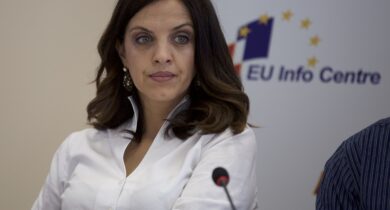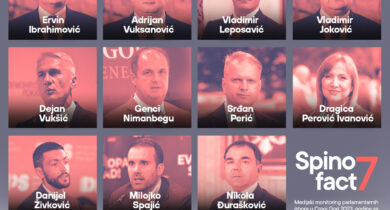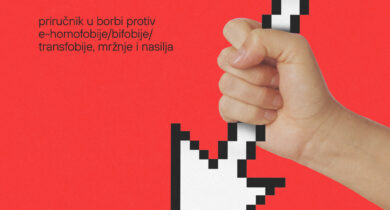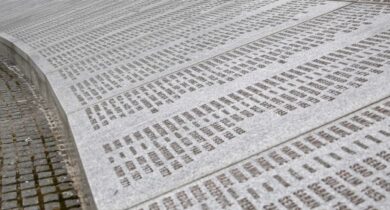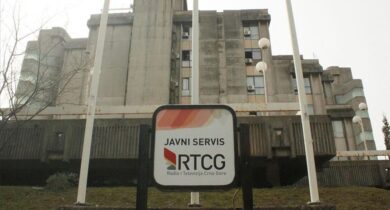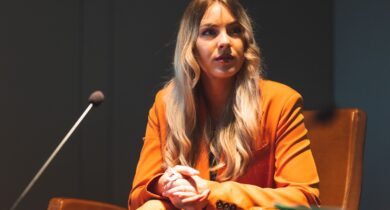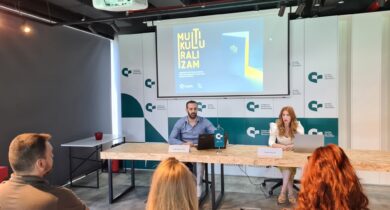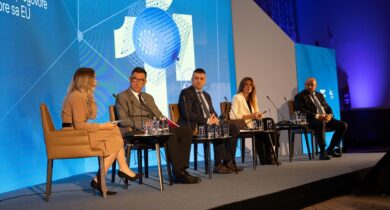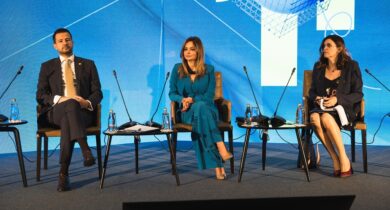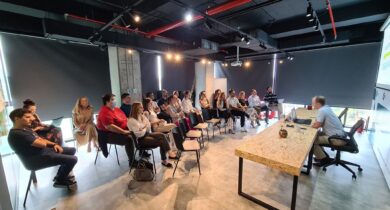Centre for Civic Education (CCE) urges to the ENIC Centre of the Ministry of Education to establish a faster mechanism for the recognition of foreign educational qualifications for the needs of the labor market and to respect the legal deadlines for this procedure. According to the data obtained by the CCE, from 1 January 2021… »
Press releases 2023
Gender equality and women’s political participation through the perspectives of list holders for parliamentary elections
Centre for Civic Education (CCE), within the framework of the project “SPINoFACT 7 – Media Monitoring of 2023 Parliamentary Elections in Montenegro with a focus on Gender Perspective”, conducted interviews with the holders of electoral lists participating in the parliamentary elections during May and June 2023. The interviews aimed to address issues related to gender… »
With digital activism against hate speech
The Centre for Civic Education (CCE) has published a publication “Digital Activism Against Hate Speech – a Handbook in the Fight against e-Homophobia/Biphobia/Transphobia, Hatred, and Violence,” which provides guidelines on the fight against hate speech motivated by real or perceived sexual orientation, particularly in the online space where there is a growing trend of such… »
28 years since the genocide in Srebrenica – Montenegro to establish memorial day
Human Rights Action (HRA), Centre for Civic Education (CCE), and ANIMA – Center for Women’s and Peace Education, on the occasion of the 28th anniversary of the genocide in Srebrenica, pay tribute to all victims and express solidarity with the survivors and their families. And this year, the persistence and courage of the families in… »
To accept the objection for non-broadcasting the information in the News 2 about the protest of 18 NGOs due to the illegal re-election of Boris Raonić as the director of the RTCG
Ombudsperson of RTCG, Danijela Popović, accepted the complaint of Human Rights Action (HRA), submitted on behalf of 18 non-governmental organizations because RTCG did not publish information in the central Dnevnik (News) about their joint protest against the re-election of Boris Raonić as director of RTCG. The Ombudsperson has recommended to the RTCG Council to accept… »
To determine responsibility for the loss of EU funds for Montenegro
Centre for Civic Education (CCE) points out that the news that the Government of Montenegro failed to create a single quality project that would be included in the financial package of 2.1 billion euros allocated by EU for 14 projects in the transport, energy, environment, human capital and private sector in the Western Balkans represents… »
Education system as one of the key factors in building a multicultural society
Centre for Civic Education (CCE) today presented the publication “Multiculturalism and underrepresented national communities in the Montenegrin education system“, which provides an overview of minority representation within the education system of Montenegro, as well as the principles and implementation of multicultural and intercultural teaching in Montenegrin schools as a manner to create a society that… »
Special State Prosecution without adequate support from the Government, and the rule of law requires political will and compromise
Appointments in the judiciary, compromise of political entities and political will are necessary for the rule of law to be achieved in Montenegro, it was assessed at the conference “Review of 11 years of progress and challenges – how to revive Montenegro’s negotiations with the EU”, which was organized today by the Centre for Civic… »
Montenegro still lacks the leadership to lead it into the EU
In the next three years, Montenegro needs to find strength to complete political processes and consolidate itself in order to complete the process of European integration by the end of 2027, stated the President of the country, Jakov Milatović, at the conference “Review of 11 years of progress and challenges – how to revive Montenegro’s… »
Baljvine – the village of peace or pure luck?
In Baljvine, Bosniaks and Serbs protected each other during the 1992-1995 war, and unlike the rest of Bosnia and Herzegovina, there was no inter-ethnic bloodshed, which is why it was called the “village of peace” in several media reports. That is why, it was also the inspiration for the research that was presented today, in… »

